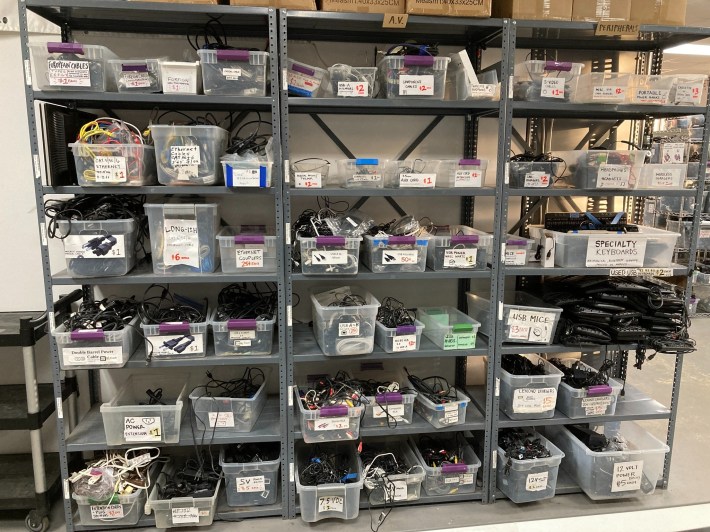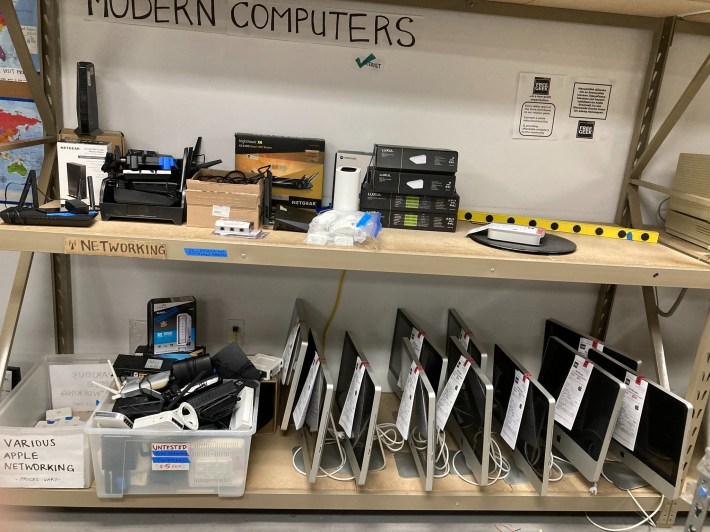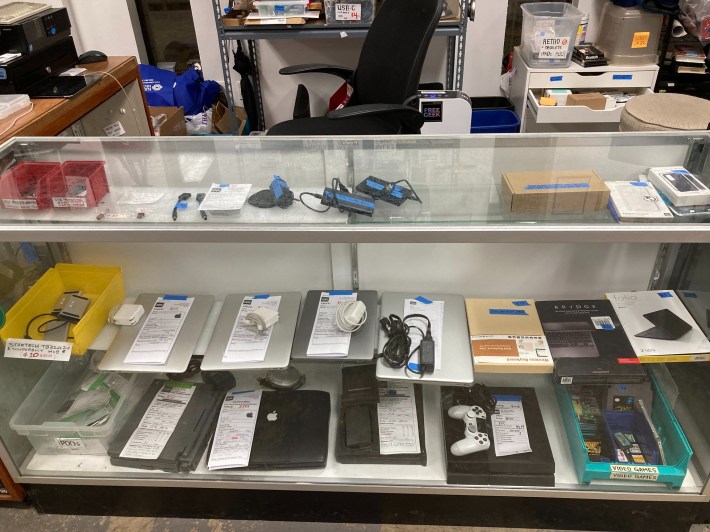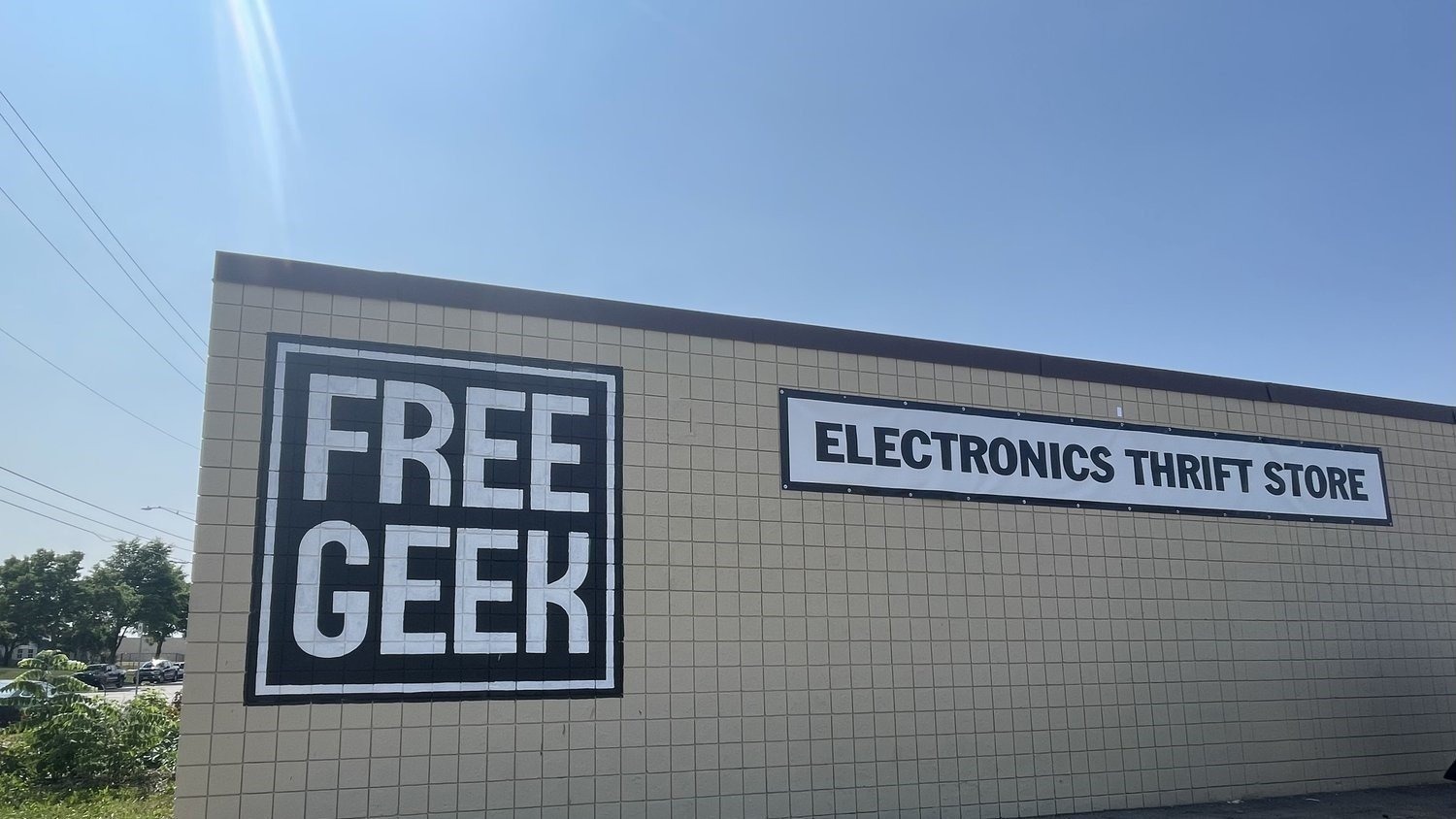If nothing else, Free Geek can liberate you from your various cord problems.
The south Minneapolis tech recycling provider/thrift store will accept the jumbled nest of cords of you've been moving house to house, or, should you find yourself in need of cords, the shop has thousands of 'em for sale, most priced at around a couple bucks.
"We all have that drawer at home full of old chargers and cords taking up space," says Kyle Kline, executive director of Free Geek Twin Cities. "I always say donate 'em to Free Geek, and if for whatever wild reason you need one again, come buy it back super cheap instead of spending $20 on Amazon."

Free Geek's mission isn't limited to cord solutions. The nonprofit was inspired by (but is not affiliated with) the Free Geek concept that sprang up in Portland, Oregon, around 1999; several other Free Geeks now dot the country. Free Geek Twin Cities materialized in 2010 with a twofold set of principles: increasing access to low-cost used electronics and reducing e-waste.
That latter issue is a massive one. The World Health Organizations estimates that, in 2022, 62 million tons of e-waste were produced around the globe, with just 22.3% of that eventually being collected or recycled. The world's e-waste problem is "getting out of control," according to the Natural Resources Defense Council. That's bad news for the environment due to lead and thousands of chemicals, child laborers tasked with sorting the pointy piles of junk, and, generally, everybody.

"You read about the U.S. shipping recycling overseas and making it somebody else's problem," says Kline, noting that Free Geek Twin Cities processed 96 tons of e-waste last year while finding new homes for 42,000 donated items. "We really believe the e-waste created in Minnesota should be handled here as well, which is why we partner with a local recycler to responsibly process what can't be repaired or reused."
As for access to tech, Free Geek is a thrifter wonderland full of cords, adapters, modern computers, vintage computers ("all the weird, cool beige ones you remember from being a kid," Kline says), speakers, tube TVs, video game consoles, and other affordably priced throwback gear. The inventory is constantly changing over, and around 75 regular volunteers are happy to educate shoppers on how to use the rehabbed products. Free Geek's repair folks wipe hard drives clean with a high-octane program that eliminates all data, Kline says, adding that they'll accept most electronics for free though donation fees come with certain tricky-to-recycle ones like printers.

This Saturday Free Geek was scheduled to host an open house, where thrift store visitors could: play retro video game consoles, tour the Free Geek restoration lab and meet the tinkerers, explore "rare and weird" electronics of yore, and hear about recycling and volunteer opportunities. But a partial roof collapse this week put the kibosh on that—stay tuned for a rescheduled event. (Thankfully nobody was injured, Kline tells us.)
"We've had longtime customers come in and say, 'Is Free Geek doing OK?' because they see emptier shelves," says Kline, whose booming operation now employs 18 staffers. "That's because there's more and more people coming in. Our biggest issue is keeping up, because we see firsthand that there's a real demand from folks who want to reuse instead of buying new."







